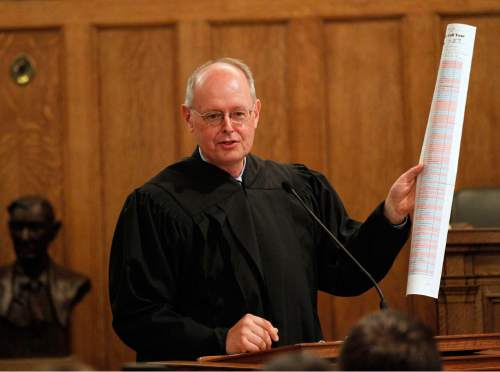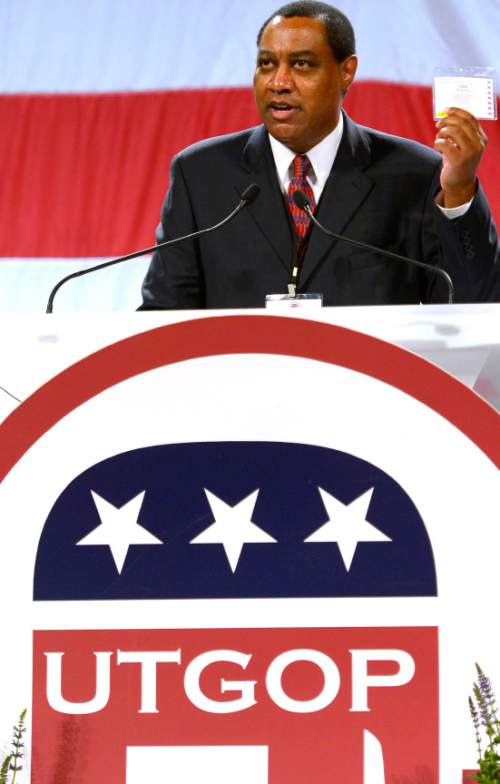This is an archived article that was published on sltrib.com in 2015, and information in the article may be outdated. It is provided only for personal research purposes and may not be reprinted.
A federal judge ruled Tuesday that the state cannot force political parties to open their primaries to unaffiliated voters, a move that will allow the Utah Republican Party to continue to close its primaries and complicate a potential signature-gathering path to the primary ballot.
U.S. District Judge David Nuffer signaled during a hearing last week that he would likely strike down the open-primary provision of SB54, as judges in other districts have repeatedly done.
SB54 sought to increase voter participation in primaries by forcing the parties to allow the state's 610,000 unaffiliated voters to cast ballots in the primary elections. But Nuffer said that encroaches on the party's First Amendment right to association.
"While a state has the authority to regulate elections and even require that political parties hold a primary election … [the] state may not force a political party to allow unaffiliated voters in its primary election," Nuffer wrote. "Such a requirement is a 'severe' burden on the political party's First Amendment rights because it dilutes the party's ability to determine its candidates."
For example, the Constitution Party has only 4,000 members. Nuffer reasoned that, if the party was forced to open its primaries to the state's 610,000 unaffiliated voters, those unaffiliated voters could easily overwhelm the party's actual members and deny the party the ability to pick its own candidates.
However, Nuffer upheld a provision in SB54 that allows candidates to earn a spot on the primary ballot by gathering a requisite number of signatures, rather than being chosen by delegates at the party's convention.
The Constitution Party had argued that allowing unaffiliated voters to sign petitions to get on the primary ballot yields a similar result to letting unaffiliated voters cast ballots in primaries.
Because a candidate has to get 28,000 signatures statewide to get on the ballot, and the Constitution Party has just 4,000 members, most of the signatures would have to come from unaffiliated voters.
But the law says that those signing petitions have to be eligible to vote in the party primaries. If the Constitution Party closes its primaries, then only the members of the party can sign petitions, essentially making it impossible for prospective candidates to take the petition route, but also negating the party's concerns about having its candidate selection co-opted.
The move, however, could complicate the process for Republican hopefuls who take the petition route, because — assuming the party continues closes its primaries — county clerks would have to verify that each signature on a petition comes from a registered member of the party.
In addition, Republican Party Chairman James Evans has argued that the party can move to disqualify candidates who take the petition route, because the party has chosen to only honor the convention process and candidates have to agree to abide by the party's rules in order to run for office.
"I think this ruling, coupled by the fact that we as a party have the right to define our membership, and our membership requires you to go through the convention route, this restores us to the process where in order to receive the Republican Party's nomination you have to go through the party's caucus-convention system," Evans said.
Utah Democratic Party Chairman Peter Corroon said that his party will continue to keep its primaries open and, as a result, allow unaffiliated voters to participate.
"While Republicans continue to shut out independents and unaffiliated voters, we welcome them with open arms to the Utah Democratic Party," Corroon said in a statement. "Our primary elections have always been open, and they will remain open. We reaffirm our support for laws that open the political process to more voters."





